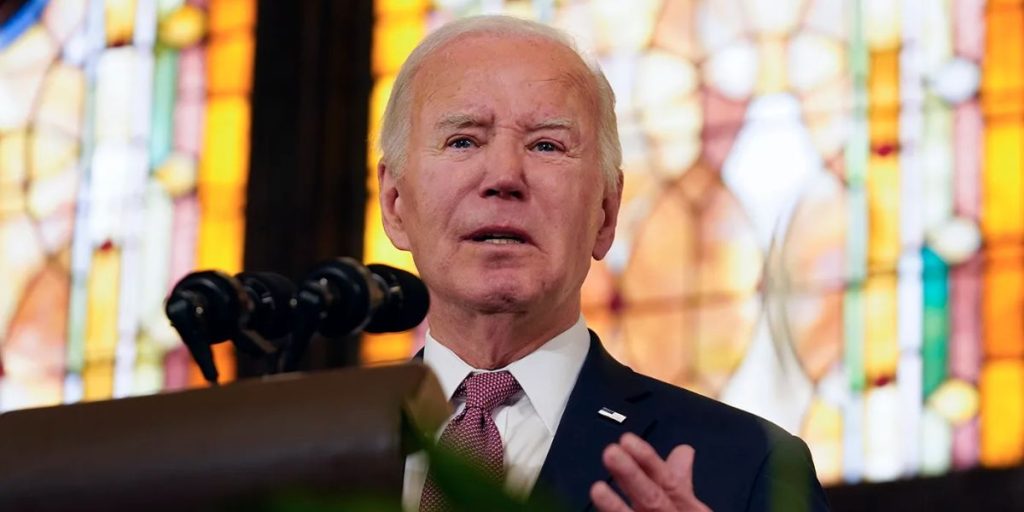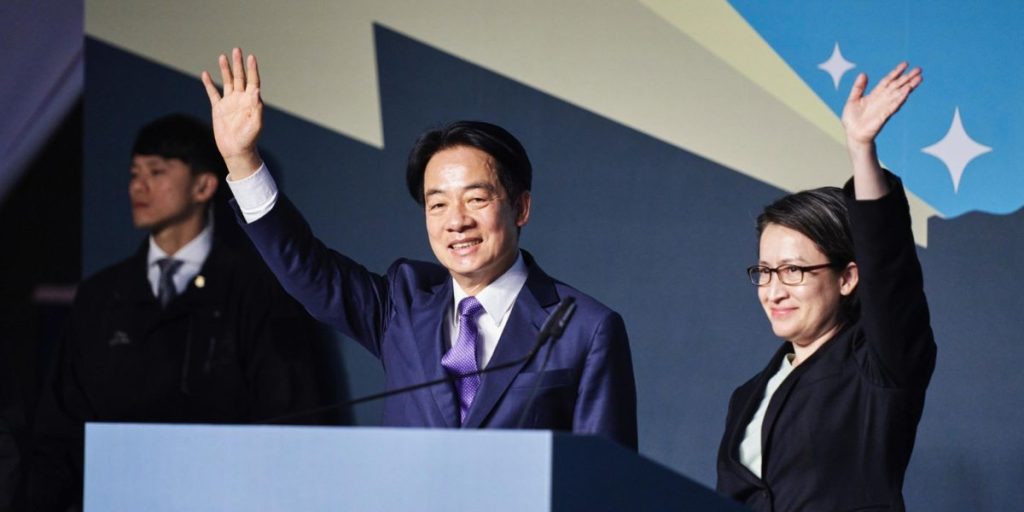After Taiwanese voters elected a new president on Saturday, President Joe Biden issued a straightforward message: “We do not support independence” for Taiwan.
Biden’s remarks, made as he was leaving for Camp David, reaffirmed the administration’s position on Taiwan’s new president, Lai Ching-te, who has faced stiff opposition from China over his calls for independence.
While the government does not advocate Taiwanese independence, it does support communication between Taipei and Beijing and expects issues to be resolved amicably and without pressure.

Taiwan’s vice president, Lai, who won a third consecutive term for the Democratic Progressive Party, issued a restrained demand on Saturday for “exchanges and cooperation with China” with “dignity and parity.”
Lai’s win will most certainly be eclipsed by an extended period of uncertainty about Beijing’s next step against its neighboring territory. China saw the election as a contest between war and peace. The United States had previously warned that China was interfering with the freely conducted election.
In a post on X, Secretary of State Antony Blinken praised Lai, adding, “We also congratulate the Taiwanese people for participating in free and fair elections and demonstrating the strength of their democratic system.”
House Speaker Mike Johnson, in a social media post, said, “The United States is eager to work with President-elect Lai and build on the strong partnership we’ve enjoyed with President Tsai.”
“To underscore the ongoing commitment of Congress to security and democracy, I will be asking the chairs of the relevant House Committees to lead a delegation to Taipei following Lai’s inauguration in May,” he added.
Republican legislators, including Arkansas Sen. Tom Cotton, Texas Sen. Ted Cruz, and Tennessee Sen. Marsha Blackburn, praised the move.
Rep. Mike Gallagher (R-Wisc.) and Rep. Raja Krishnamoorthi (D-Ill.), chairs and ranking members of the House China Committee, said in a statement, “During this transition period and into President-elect Lai’s forthcoming term in office, the United States will continue to stand shoulder-to-shoulder with our friends in Taiwan.”

Former House Speaker Nancy Pelosi paid her first visit to Taiwan in decades in 2022, causing China to launch days of military maneuvers near the self-governing island.
Sen. Ed Markey (D-Mass.) led another congressional delegation to Taiwan two weeks following her visit, and several more have since followed. Legislators have stated unequivocally that such travels signal a determined position against Chinese aggressiveness in the region.
During a visit to Taiwan in April, House Foreign Affairs Committee Chair Rep. Michael McCaul (R-Texas) told Taiwanese authorities, “The United States stands with you and will protect you.” That journey was the most nonpartisan tour to the island by Congress since the 1979 enactment of the Taiwan Relations Act, which established the United States’ commitment to support the island’s democracy without directly opposing China.
In November, Biden met with Chinese President Xi Jinping in an attempt to defuse tensions between the two global giants. During the discussion, Xi urged that the United States “stop arming Taiwan” and said that its “reunification” with China was “unstoppable,” while Biden stated that the United States’ policy toward Taiwan had not changed.